Can Cats Eat Ritz Crackers? Vet-Reviewed Risks & Why You Should Say No
- 30 Apr 2025 10:05
We've all been there: enjoying a snack on the couch, and suddenly a pair of curious feline eyes is fixed on your every move. Maybe your cat even bats a paw at your hand, hoping for a taste. If your snack of choice happens to be the buttery, salty crunch of Ritz crackers, you might pause and wonder, "can cats eat Ritz crackers?" It seems harmless enough, just a tiny bite. However, while a minuscule nibble likely won't cause immediate catastrophe, Ritz crackers are far from an ideal or safe treat for our feline companions.
This article delves deep into why Ritz crackers and similar human snacks are unsuitable for cats. We'll break down the ingredients, explore the potential health risks, discuss feline nutritional needs, and offer safer alternatives, all grounded in veterinary insights and principles of Expertise, Authoritativeness, and Trustworthiness (EEAT). Our goal is to provide cat owners with clear, reliable information to protect their furry friends' health.
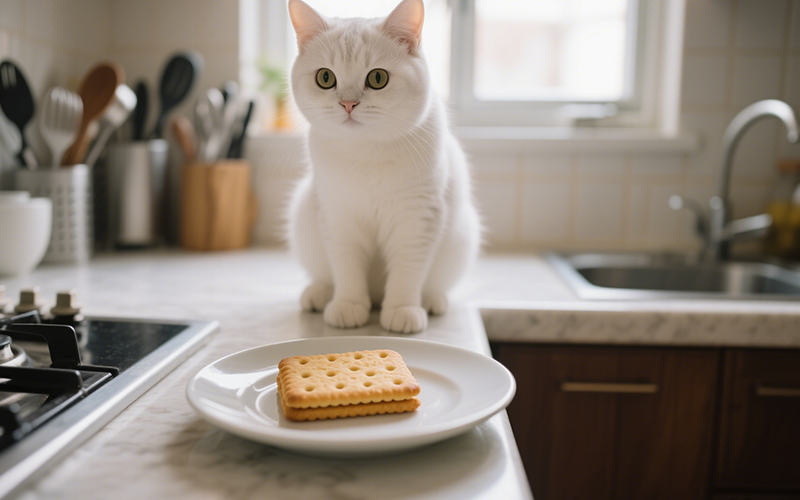
What Exactly Are Ritz Crackers Made Of? An Ingredient Deep Dive
To understand why Ritz crackers aren't good for cats, let's look at their typical ingredients. While formulations can vary slightly, common components include:
Unbleached Enriched Flour (Wheat Flour, Niacin, Reduced Iron, Thiamine Mononitrate {Vitamin B1}, Riboflavin {Vitamin B2}, Folic Acid): The primary ingredient is processed white flour.
Vegetable Oil (Soybean and/or Canola and/or Palm and/or Cottonseed Oil): A significant source of fat.
Sugar: Adds sweetness.
Leavening (Calcium Phosphate and/or Baking Soda): Helps the crackers rise.
Salt: Provides the characteristic savory flavor, often in high amounts.
High Fructose Corn Syrup: Another form of sugar.
Soy Lecithin: An emulsifier.
Natural Flavor: An unspecified flavoring agent.
Immediately, several red flags appear when considering this ingredient list from a feline perspective. Cats are *obligate carnivores*. This means their bodies are biologically designed to thrive on a diet consisting almost entirely of animal tissue. Their digestive systems and metabolic processes are not adapted to handle large amounts of carbohydrates, sugars, or certain types of fats efficiently, and they have very specific nutrient requirements that processed human snacks simply don't meet.
The Core Question: Are Ritz Crackers Safe or Toxic for Cats?
Let's be clear: Ritz crackers are not considered acutely toxic to cats in the way that things like chocolate, onions, garlic, or lilies are. A tiny piece accidentally ingested by a healthy cat is unlikely to cause severe poisoning.
However, "not immediately toxic" does not equate to "safe" or "healthy." The real issue lies in the *unsuitability* of the ingredients and the potential for short-term and long-term health problems if consumed regularly or in significant amounts. So, when asking "can cats eat Ritz crackers?", the practical and health-conscious answer leans heavily towards **no**. They offer virtually zero nutritional benefits relevant to a cat's needs and introduce several potential risks.
Think of it like humans eating cardboard – it might not poison us in small amounts, but it provides no nourishment and could cause digestive issues. For cats, Ritz crackers are nutritionally void and potentially detrimental.
Specific Health Risks of Feeding Ritz Crackers to Cats
Feeding Ritz crackers, even as an occasional treat, can expose your cat to several health risks:
Excessive Sodium (Salt): This is a major concern. Ritz crackers are notoriously high in salt. While cats need some sodium, the levels in processed human snacks are far too high. Excess sodium intake can lead to:
Increased thirst and urination.
Sodium ion poisoning (salt toxicity) in larger ingestions, causing vomiting, diarrhea, lethargy, tremors, seizures, and potentially death.
Aggravation of pre-existing conditions like kidney disease or heart disease.
High Fat Content: The oils used in Ritz crackers contribute significant fat. While cats need fat, excessive intake, especially of processed vegetable oils, can cause:
Gastrointestinal upset (vomiting, diarrhea).
Pancreatitis: A painful and potentially fatal inflammation of the pancreas, often triggered by high-fat meals.
Obesity: Empty calories contribute to weight gain, increasing the risk of diabetes, arthritis, and other obesity-related issues.
High Carbohydrates and Sugar: Cats have minimal biological need for carbohydrates. Their bodies are designed to use protein and fat for energy. Ritz crackers are primarily carbs and contain added sugars (including high fructose corn syrup). This can lead to:
Digestive Upset: Cats lack sufficient enzymes (like amylase) to efficiently digest large amounts of carbs, potentially causing gas, bloating, and diarrhea.
Blood Sugar Spikes: Unnecessary sugars can disrupt blood glucose levels.
Weight Gain and Obesity: Carbs are readily converted to fat if not used for energy.
Increased Risk of Diabetes Mellitus: Chronic consumption of high-carb diets is a risk factor for developing diabetes in cats.
Lack of Essential Feline Nutrients: Ritz crackers provide none of the critical nutrients cats require, such as:Filling up on crackers can displace room in their diet for nutritionally complete cat food, potentially leading to deficiencies over time.
Taurine: An essential amino acid vital for heart health, vision, and reproduction. Cats cannot synthesize enough taurine and *must* obtain it from their diet (primarily meat).
Arachidonic Acid: An essential fatty acid found in animal fats.
Animal-Based Protein: The building blocks for a healthy feline body.
Preformed Vitamin A: Cats cannot convert beta-carotene from plants into Vitamin A efficiently and need the preformed version found in animal tissues.
Potential Allergens/Sensitivities: Ingredients like wheat (gluten) and soy can be allergens for some cats, causing skin issues (itching, rashes) or digestive problems.
Choking Hazard: The dry, crumbly texture could potentially pose a minor choking risk, especially for kittens or cats that gulp their food.
Artificial Additives/Preservatives: While specific formulations vary, some processed snacks contain artificial flavors, colors, or preservatives whose long-term effects on cats are not well studied or understood.
Nutritional Void: Comparing Ritz Crackers to a Cat's Needs
A cat's natural diet (e.g., rodents, birds) is high in protein, moderate in fat, and extremely low in carbohydrates. Commercial cat foods are formulated to mimic this profile, albeit with adjustments for different life stages and health conditions. Ritz crackers are the antithesis of this.
Let's illustrate the nutritional mismatch with a simplified comparison:
| Nutrient Aspect | Ritz Crackers (Approx. Human Snack) | Typical Adult Cat Food (Dry/Wet Average) | Ideal Feline Requirement (Obligate Carnivore) |
| Protein | Low (Plant-based) | High (Often 30%+, Animal/Plant Mix) | Very High (Primarily Animal-Based) |
| Fat | High (Often Processed Vegetable Oils) | Moderate to High (Animal/Plant Mix) | Moderate (Primarily Animal-Based) |
| Carbohydrates | Very High (Refined Flour, Sugars) | Variable (Lower in Wet, Higher in Dry) | Minimal |
| Sodium | Very High | Controlled Levels | Naturally Moderate in Prey |
| Taurine | None | Supplemented to Required Levels | Essential, Obtained from Meat |
This table clearly shows that Ritz crackers offer the opposite of what a cat actually needs, highlighting why they are an inappropriate food choice.
Help! My Cat Just Ate a Ritz Cracker! What Should I Do?
If you catch your cat munching on a dropped cracker or stealing a bite, don't panic, especially if it was just a small piece.
Remove Access: Make sure there are no more crackers available for your cat to eat.
Assess the Amount: Was it a tiny crumb or a whole cracker (or more)? A small nibble is less concerning than a larger amount.
Monitor Your Cat: Keep a close eye on your cat for the next 24-48 hours. Watch for any signs of illness, including:
Vomiting
Diarrhea
Lethargy or decreased activity
Loss of appetite
Excessive thirst or urination (could indicate salt load)
Signs of abdominal pain (reluctance to be touched, hiding)
Provide Fresh Water: Ensure your cat has plenty of fresh water available, especially given the cracker's salt content.
When to Call the Vet: Contact your veterinarian immediately if:
Your cat ate a significant amount (e.g., multiple crackers).
Your cat shows any signs of illness listed above.
Your cat has pre-existing health conditions (like kidney disease, heart problems, diabetes, or pancreatitis history), as even small amounts of inappropriate food can cause complications.
You are worried or unsure for any reason. It's always better to seek professional advice.
Healthy and Safe Snack Alternatives for Cats
If you want to give your cat a special treat, ditch the crackers and opt for species-appropriate options. Remember the 10% rule: treats should make up no more than 10% of your cat's total daily caloric intake to avoid unbalancing their diet.
Safe and healthy treat ideas include:
Small Pieces of Cooked Meat: Tiny bits of plain, cooked chicken, turkey, lean beef, or lamb (no bones, skin, seasoning, or oils).
Small Pieces of Cooked Fish: Flakes of cooked salmon or tuna (packed in water, no salt added) can be offered occasionally in very small amounts (due to mercury concerns with frequent tuna feeding). Ensure no bones are present.
Commercial Cat Treats: Choose high-quality treats specifically formulated for cats. Look for those that are high in protein and low in fillers and artificial ingredients. Dental treats can also offer oral health benefits.
Freeze-Dried Meat Treats: Single-ingredient treats (like chicken, salmon, or liver) are often a healthy choice.
Catnip: While not a food, dried catnip or fresh catnip leaves can provide enrichment and enjoyment for many cats (though not all cats react to it).
Broth: A small amount of low-sodium chicken or beef broth (ensure NO onion or garlic) can be appealing.
Always introduce new treats slowly and in small amounts to monitor for any adverse reactions.
The Veterinary Perspective: Why Vets Discourage Human Snacks
Veterinarians consistently advise against feeding cats processed human foods like Ritz crackers. Their stance is based on a deep understanding of feline physiology and nutritional requirements.
Emphasis on Species-Appropriate Diets: Vets stress the importance of feeding cats a diet formulated to meet their unique needs as obligate carnivores.
Risk Awareness: They frequently see pets suffering from conditions exacerbated or caused by inappropriate diets, including obesity, diabetes, pancreatitis, and gastrointestinal upset from high-fat or high-salt snacks.
Nutrient Dilution: Human snacks offer empty calories that can dilute the essential nutrients cats get from their balanced food, potentially leading to deficiencies if fed regularly.
Toxicity Concerns: Many human foods contain ingredients toxic to cats (onions, garlic, xylitol, etc.), and it's safer to avoid sharing altogether than risk accidental poisoning.
When asked "can cats eat Ritz crackers?", a veterinarian will almost certainly explain why it's a poor choice due to the high salt, fat, and carbohydrate content, and the complete lack of necessary feline nutrients, strongly recommending safer, species-appropriate alternatives instead.
Understanding Feline Nutrition: The Obligate Carnivore
To truly appreciate why Ritz crackers are unsuitable, it helps to understand what being an "obligate carnivore" means:
Meat is Mandatory: Cats *must* eat meat to survive and thrive. They lack the metabolic pathways to synthesize certain essential nutrients (like taurine, arachidonic acid, preformed Vitamin A) that are readily available in animal tissues.
High Protein Requirement: Cats need significantly more protein in their diet compared to dogs or humans.
Limited Carbohydrate Processing: Their digestive system is short and designed for processing meat, not large amounts of plant matter or carbohydrates. They lack the enzyme salivary amylase to start carb digestion in the mouth and have lower levels of intestinal enzymes for breaking down sugars and starches.
Unique Fat Metabolism: They utilize animal fats efficiently for energy and require specific fatty acids found predominantly in animal sources.
Feeding a cat a high-carbohydrate, low-protein, high-sodium snack like a Ritz cracker directly contradicts their fundamental biological needs.
Leveraging Technology for Pet Health: The PettureX App
Navigating the dos and don'ts of pet care can be challenging. Sometimes you need quick information, whether it's identifying a plant your cat nibbled on or understanding a minor symptom. Modern tools can assist.
Consider the PettureX app, designed as a smart assistant for pet owners. Its features can be particularly helpful:
Image Recognition for Species and Plants: If your cat eats something unknown outdoors or indoors, the app might help identify it (though caution and vet consultation are still key if toxicity is suspected).
Pet Health Image Analysis: While not a diagnostic tool, you can upload images of concerns (like skin issues) for preliminary AI-based insights, helping you formulate questions for your vet.
24/7 AI Vet Consultation: Have a quick question about whether a symptom warrants an immediate vet visit after your cat ate something unusual? The AI chat feature provides instant information and guidance based on your input, supporting your decision-making process.
Apps like PettureX are valuable resources for immediate information and tracking, but they are designed to *support*, not replace, the essential role of your veterinarian in diagnosing and treating your pet.
Conclusion: Keep the Ritz Crackers for Yourself
So, while the image of sharing a buttery cracker with your beloved cat might seem sweet, the health implications make it a bad idea. The definitive, health-conscious answer to "can cats eat Ritz crackers?" is no. They are nutritionally inappropriate, loaded with salt, fat, and carbohydrates, and lack the essential nutrients cats need.
Key Takeaways:
Ritz crackers offer no nutritional value for cats and pose several health risks (high salt, fat, carbs).
They are not acutely toxic, but regular or large consumption can lead to GI upset, obesity, pancreatitis, and potentially worsen other health conditions.
Cats are obligate carnivores with specific dietary needs unmet by human snacks.
A tiny accidental nibble likely isn't cause for panic, but monitor your cat closely.
Opt for species-appropriate treats like small pieces of cooked meat or commercial cat treats in moderation.
Always prioritize a balanced, high-quality commercial cat food as the foundation of their diet.
Protect your feline friend's health by reserving human snacks for humans and providing your cat with the nutrition they biologically require. When in doubt about any food item, always consult your veterinarian.
Related
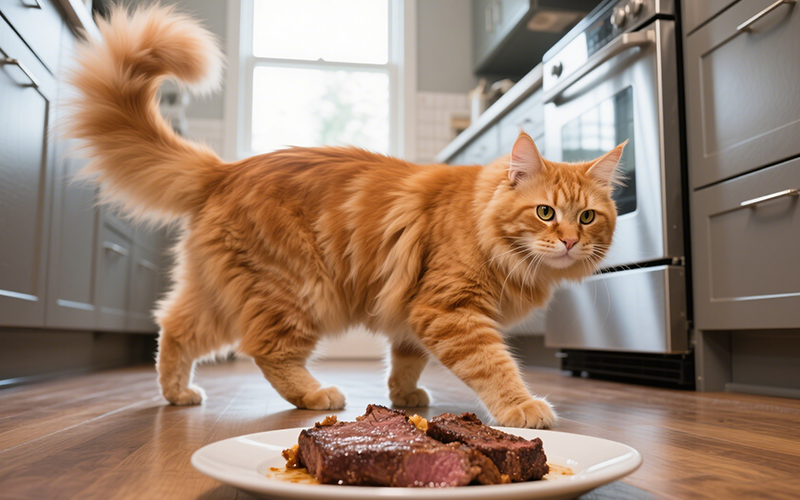
Can Cats Eat Roast Beef? A Vet-Reviewed Guide to Safe Sharing
- 30 Apr 2025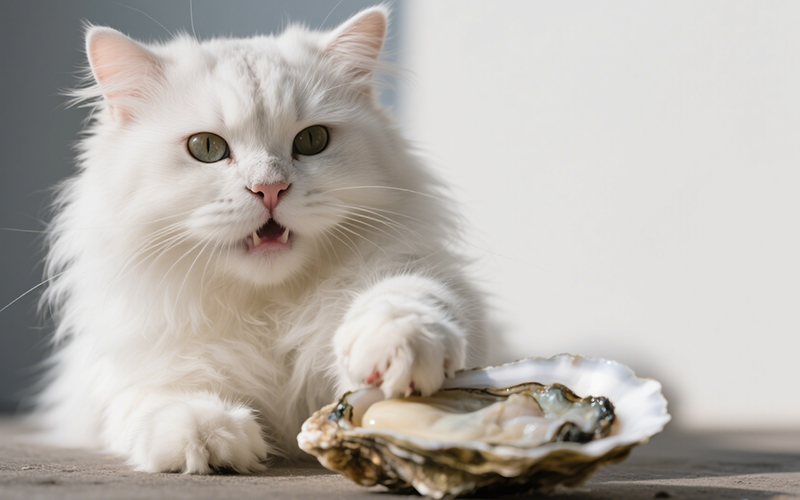
Shucking the Myths: Can Cats Eat Raw Oysters? A Deep Dive into Feline Safety
- 29 Apr 2025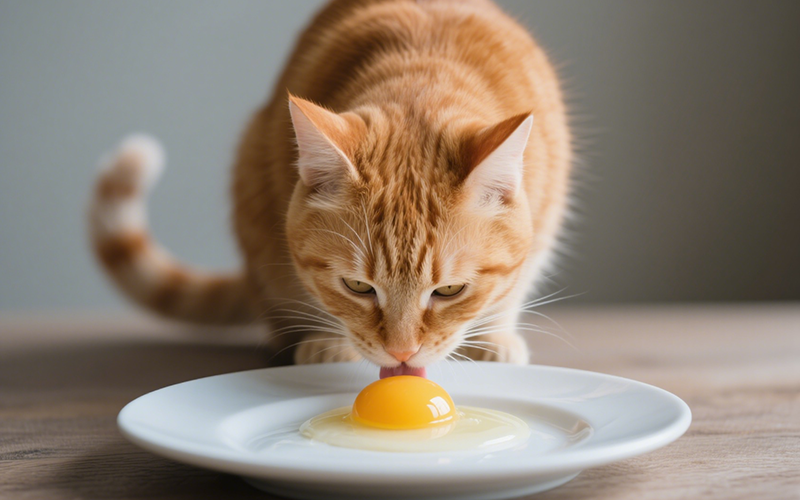
Raw Deal? Can Cats Eat Raw Egg Yolk Safely? A Vet-Reviewed Deep Dive
- 29 Apr 2025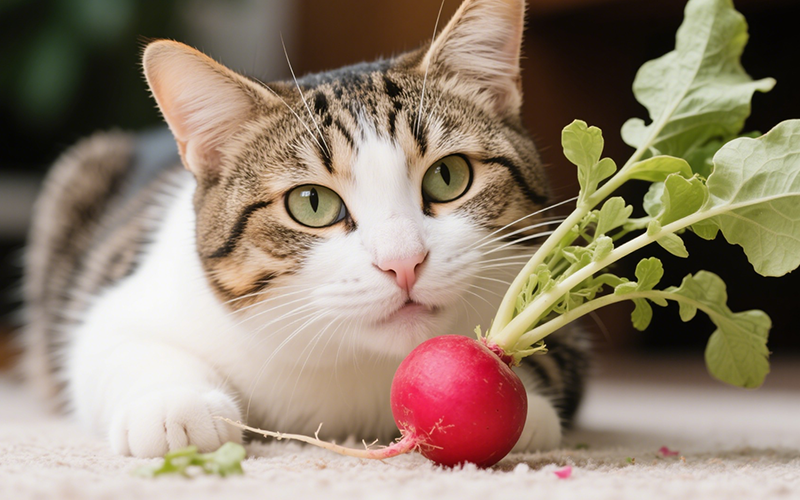
Radish Reality: Can Cats Safely Nibble This Peppery Root? A Vet-Reviewed Guide
- 28 Apr 2025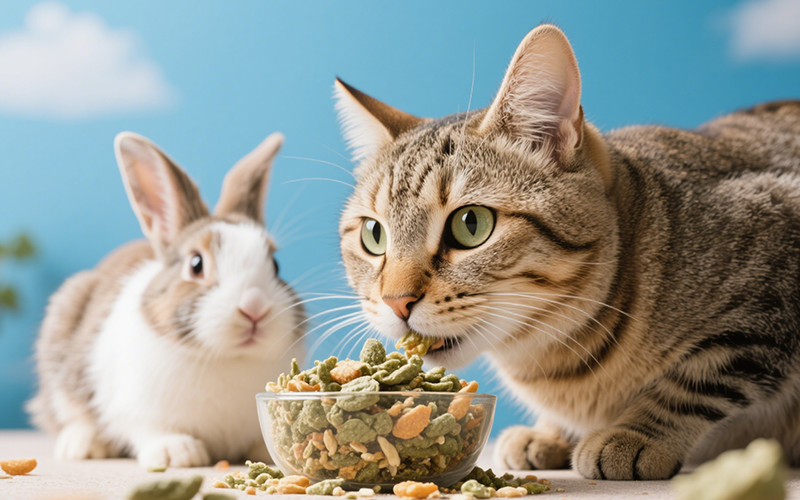
Rabbit Food & Felines: Can Cats Eat Rabbit Food Safely? Why Vets Say No
- 28 Apr 2025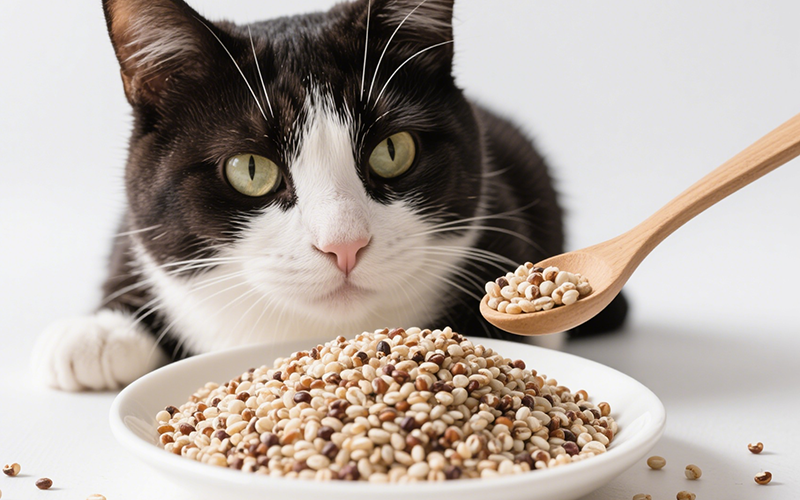
Quinoa for Kitties? Unraveling the Safety of This Trendy Grain for Cats
- 26 Apr 2025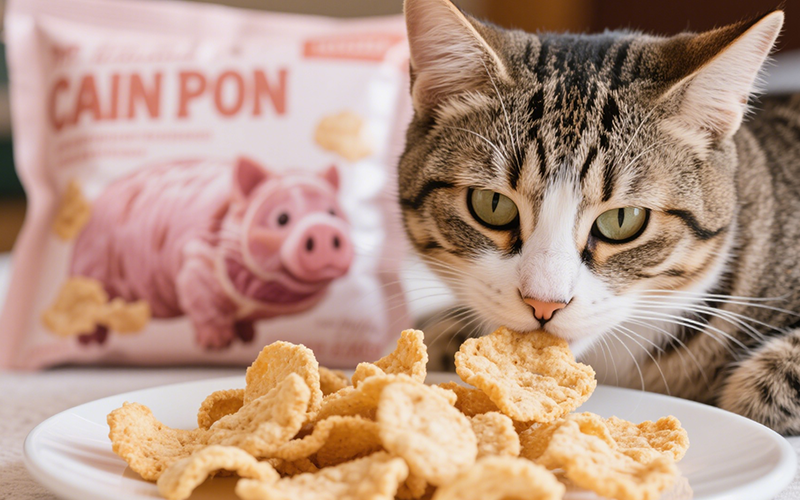
Crunch Time Danger: Can Cats Eat Pork Rinds? A Vet's Perspective on This Salty Snack
- 26 Apr 2025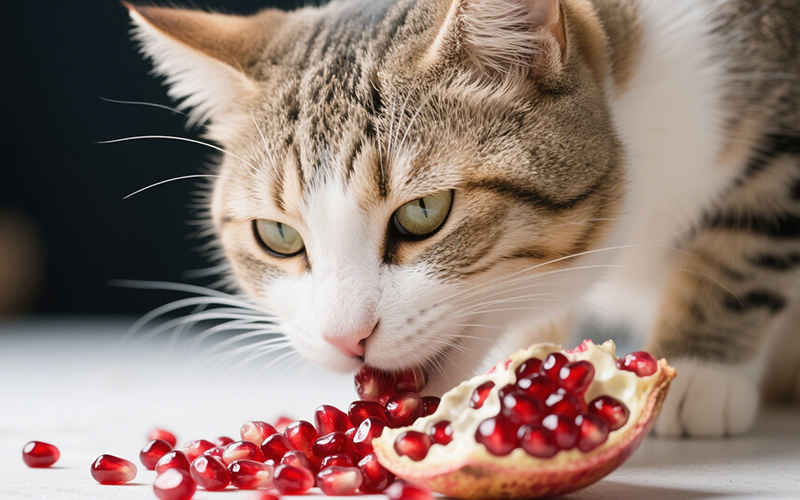
Pomegranate Peril: Can Cats Eat the Seeds Safely? A Vet-Reviewed Guide
- 25 Apr 2025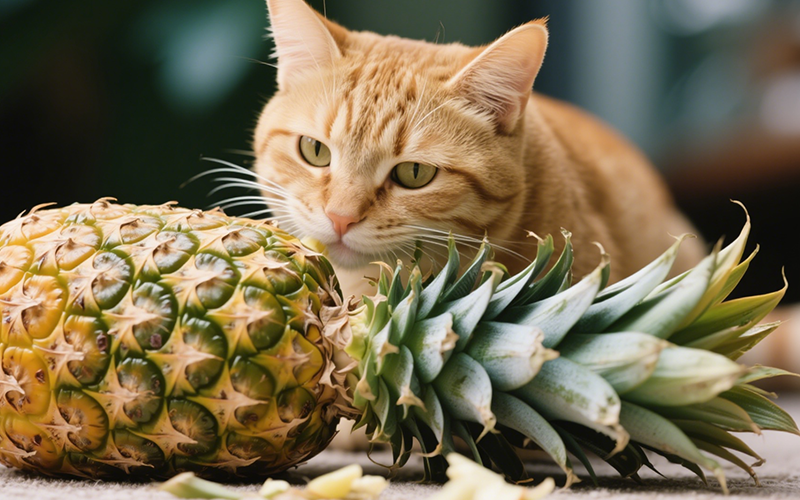
Prickly Problem: Can Cats Eat Pineapple Leaves Safely? A Vet-Reviewed Risk Analysis
- 25 Apr 2025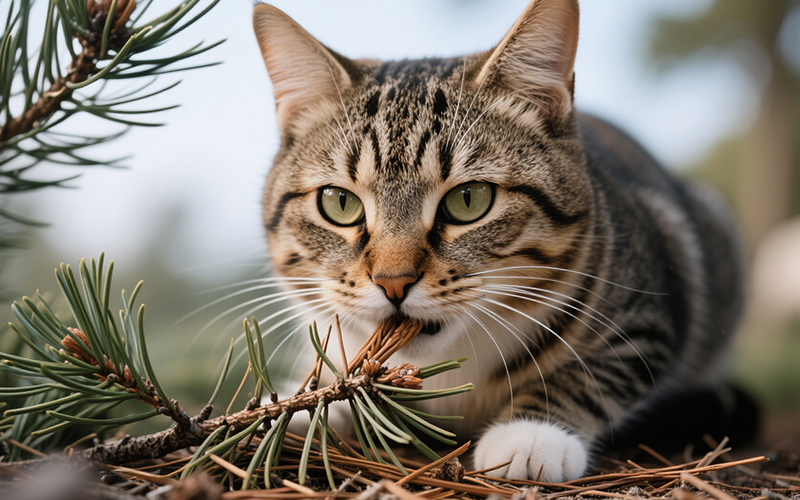
The Prickly Truth: Can Cats Eat Pine Needles Safely? A Guide for Concerned Owners
- 24 Apr 2025
